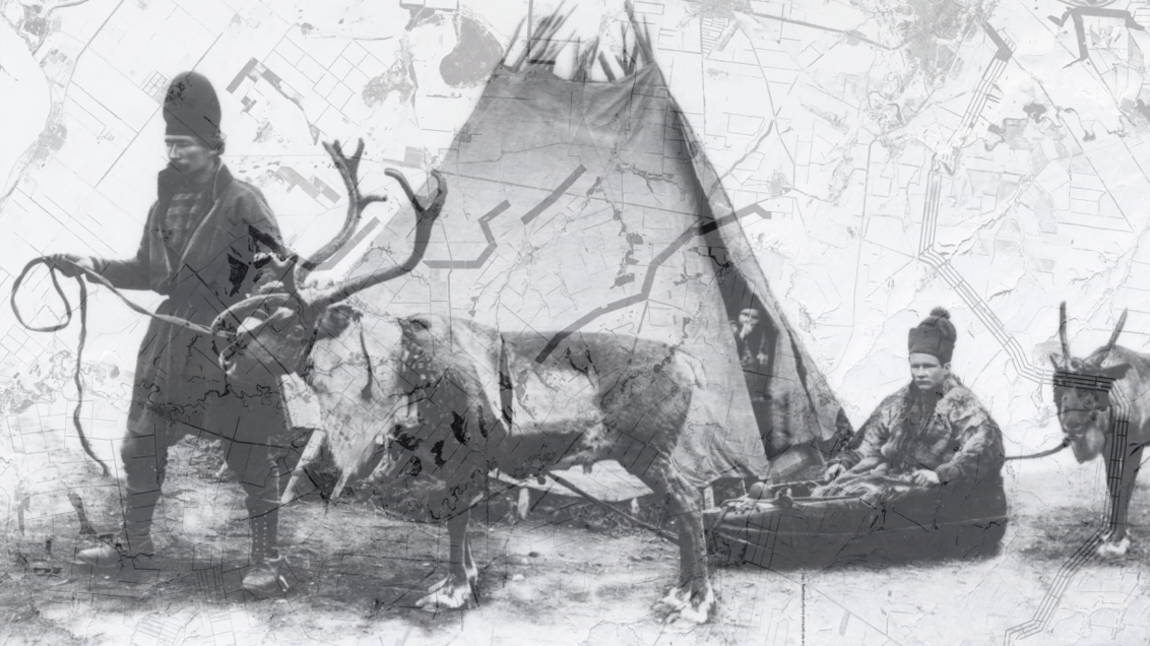
Mapping otherness in the North. Identifying, collecting, and sharing knowledge in Sámi studies in 2023
Mapping otherness in the North
Identifying, collecting, and sharing knowledge in Sámi studies in 2023
University of Strasbourg | 27-28.4.2023
With roots in the international legal framework shaped after WWII, the last three decades have seen major developments in post-colonial studies about the Northernmost part of the European continent. The cultural, political, and linguistic winter brought by centuries of forced assimilation and colonization is nowadays progressively overturned by a renaissance of indigenousness. From fundamental changes in language policies to the recent legislative or jurisprudential recognition of right to own or use traditional lands, defining otherness has been at the epicenter of global politics in the North over the last 50 years. The recent evolutions must however not hide a reality that can sometimes be ignored by mass mediated discourse about the Sámi people. In fact, over the last decade, global awareness for the arctic has been directly linked to environmental issues: from mining operations in Gállok, to wind parks in Storheia and the consequences of an unusually warm winter 2021/22 on reindeer herding. At national level, this political discourse about equality is increasingly openly questioned in print and on social network media.
An explanation to this gap between theory and reality could be the strong essentialization process irrigating the exogroup imaginary since the beginning of colonization of Sápmi. The discourse “All Sámis are reindeer herders” can be analyzed in the light of Chartier’s concept of ‘Imaginary of the North’ (2016) and even more through the prism of post-colonial studies. Local ecology knowledge based on a close interaction between local communities and their ecosystem is fundamental in defining the singularity of indigenous groups. It is however not exclusive. By focusing on key singularities of such communities, the dominant group created its own definition of otherness in the North. As Thhiwai Smith (2012) showed, the strong bond between nature and indigenous people shaped with colonization has been a cornerstone in the representation of indigenous people by colonial powers. In practice, like in every community around the world, identity is a complex set of knowledge and narrative, individual or shared as highlighted by Ricœur (1988), and to some extent by Foucault (1969). Moreover, the discourses that support these identities construct an image of the Sámi people that last in the contemporary fictions (or productions). The ambivalence of the representation – to give a new perspective of the Sámi but still maintain certain stereotypes – nourish the outsider gaze. In fact, in fiction, there is a purpose in the continuation of this controversial image. The role of research, especially methodologies based on post- colonialism and decolonial studies, is therefore fundamental: highlight the complexity of identities within the Sámi group. They are also key to understanding the intricate interconnections amongst knowledge spread across Sámi and dominant groups. The academic production of the past few years is proof of the vivacity and appeal of this field of study.
Therefore, based on a transversal, pluri-disciplinary approach, the objective of the symposium is to question the notion of sáminess beyond the usual academic delimitations. Discussions will seek to analyze the definition and limits given to Sámi identity, as well as highlighting present and past exchanges with other cultural and political spheres in Nordkalloten. Which elements unify the discourse on indigenousness in Sápmi? What is ‘being’ Sámi in 2023? How to preserve the right to auto determination in Sápmi? What place for local ecology knowledge? Are Sámi languages the smallest defining elements of a unified community? Which are the interconnections with Kven and Meänkieli? Which future for transnational cooperation with Russia? Without being exhaustive, these are the questions that could be our guidelines to seek a comprehensive overview of past and present academic research in the field of Sámi studies in 2023 while highlighting blind spots, unchartered possibilities of our discipline.
Therefore, we would gladly welcome papers that may be inspired by, but not limited to, the following themes:
- The notion of frontier especially between minority and dominant communities, especially in sociolinguistic. Interconnection with other languages in the North, like Kven and Meänkieli would be warmly welcomed
- Shaping a legal framework for safeguarding rights of the sámi people: reflexive and prospective approach
- Nation building strategies and transnational governance by the Sámi group
- Narration of identities in Sápmi from a cultural point of view, e. g. in literature, visual, musical, and performative arts as well as representation and place of the Sámi people and culture in contemporary corpus
- From individual to collective knowledge: networks of knowledge amongst Sámis
- Diffusion of research in Sámi studies
—
These themes are indicative. The call for papers is open to all topics relevant for a better understanding of postcolonial studies in northern Fennoscandia – as long as a Sámi culture plays a role.
A publication of the proceedings in a peer-review international journal is planned for 2024.
Proposal Submission
Paper proposals (20 minutes, followed by 20 minutes of discussion) shall be submitted to alexandre.chollet@unicaen.fr, marie-lou.solbach@etu.unistra.fr and azeitler@unistra.fr before January 15th, 2023. We encourage all researchers in Nordic studies to apply, especially PhD students and recently graduated Dr. Phil.. A notification will be sent by the organization to confirm reception of the proposal. Applicants will be informed latest on February 1th, 2022, if their proposal is accepted or rejected. Proposals shall include: a title, an abstract of ca. 3000 signs (excluding bibliographic references), 5 keywords and a short biographical note.
English will be the working language of the symposium.
Partners
The symposium is organized in partnership with the Unit research 1341 Mondes germaniques et nordeuropéens (MGNE) of the University of Strasbourg and the Unit research 4254 Équipe de Recherche sur les Littératures, les Imaginaires et les Sociétés (ERLIS) of the University of Caen. Additional partners such as the Alsace Inter-University House for the Social Sciences and Humanities (MISHA) help us with their expertise and financial support.